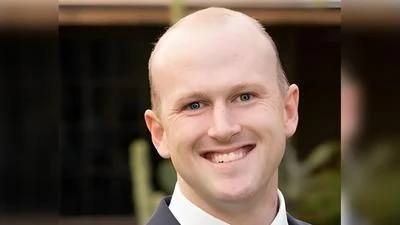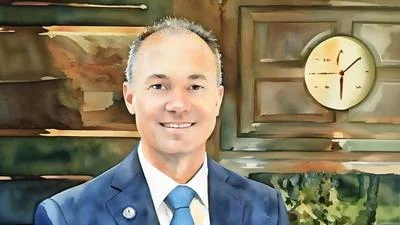David Nekrutman is one of the world’s pioneering voices in Jewish-Christian relations.
As Executive Director of The Isaiah Projects and founder of Biblical Excavations, he works to deepen bonds between Christians and Jews through authentic relationships, Bible-based education, and cultural exchange.
A graduate of Oral Roberts University—where he became the first Orthodox Jew to earn a theology degree—Nekrutman’s unusual background, including his work at the Israeli consulate and decades spent building interfaith bridges, positions him as a rare authority in both faith traditions.
Born into a non-religious Jewish family in New York, Nekrutman says, “The first eight years of my life, I grew up in a non-religious home… assimilated into New York culture.” That changed when his father placed him in an ultra-Orthodox Jewish school in Brooklyn, radically altering the trajectory of his household. “I became the rabbi of the household simply because I was learning all about Judaism and I’m being self-taught along the process.”
His journey from a public school student to an Orthodox Jew led him into politics and eventually to the Israeli consulate in New York, where he was responsible for community affairs and media outreach during the early 2000s. But the turning point came when his boss asked him to attend a pro-Israel event at a church—something his religious education strictly forbade. “Do I value my religious education that taught me not to go into a church? Or do I value my job?” he recalls.
After receiving a rabbinic dispensation, he walked into a church for the first time in his life, an experience that launched his decades-long mission of bridge-building.
Despite progress, Nekrutman emphasizes how rare it still is for Orthodox Jews to enter churches and engage from the pulpit. “There are very few Orthodox rabbis willing to go inside a church, specifically in the sanctuary area.”
He traces the origins of Jewish hesitancy to enter churches to Maimonides, whose classification of Christianity as idolatry—because of its Trinitarian beliefs—still influences Jewish legal thought. But Nekrutman disagrees with that view, noting that “there were people during Maimonides’ time that would argue with him” and that modern context and relationships must be considered.
Nekrutman points out that Jewish-Christian friendship, especially between evangelicals and Orthodox Jews, is relatively new. “Until about 25 to 30 years ago, it was mainly with the high church and very few Orthodox rabbis at the table,” he says.
He credits Rabbi Ari Sheinberg and Pastor John Hagee with making this new alliance possible, noting that “Pastor Hagee couldn’t have done any of this without a yes from an Orthodox rabbi.”
A key part of Nekrutman’s mission is helping Christians and Jews understand each other’s theological underpinnings. He distinguishes between two major schools of Christian thought: replacement theology, which claims the Church replaces Israel in God’s covenant, and what he calls Christian Zionism, where Christians “walk out their faith in Jesus” while affirming that Jews remain God’s chosen people.
“A Christian gets a download from God and although the Jew is not accepting Jesus, it doesn’t mean as a Christian I don’t help my elder brothers in faith,” he says.
He finds it striking that most Christian support for Israel is grounded in the Hebrew Bible. “Genesis 12:3, Ruth, Esther, Psalms—it’s all coming from the Hebrew Bible,” he says. “If a Jew doesn’t appreciate that, it’s sacrilege.”
But he worries about the influence of the “social justice gospel,” especially among younger evangelicals. He says this theology, when divorced from biblical literacy, can lead to moral confusion. “There’s a mercy on things that God would consider forbidden to have mercy on,” he says.
After the Hamas attacks on October 7, he was alarmed by the muted response from parts of the Church. “I would have expected more of an outcry,” he says. “Many stood quiet.”
His concern isn’t just about Israel—it’s about the health of Christian faith itself. “Although the Bible is the best-selling book, it is not the best-read book,” Nekrutman says. He blames biblical illiteracy for what he sees as the younger generation’s drift. “If you have an illiterate biblical paradigm, then it’s easy for the fads and the trends to come in and influence our youth.”
A key theological insight Nekrutman offers is the distinction between saying “Jesus was Jewish” and “Jesus is Jewish.” He argues that understanding Jesus as a product of Second Temple Judaism is essential to any serious Christian discipleship. “Without having a background specifically in Second Temple Judaism, it’s going to be hard for a Christian to have a high-definition understanding of their own scriptures.”
When asked whether his goal is simply to build Christian support for Israel, Nekrutman is emphatic: “Israel will survive whether a Christian is a friend of Israel or not, he says.” His aim is covenantal partnership, not strategy. “This is something that’s part of the covenantal expression that we both share.”
Today, Nekrutman continues his work through The Isaiah Projects and Biblical Excavations, designing educational resources for Christian homeschooling families and encouraging interfaith engagement based on mutual respect. “I wake up every day and I see miracles,” he says. “A Christian actually coming to Israel is a miracle for me… even more so if they come to engage with the Jewish people.”
For Nekrutman, the greatest sign of success is simple: “When I have a pastor at my Shabbat table… that’s truly the true relationship. I’m at your table, you’re at my table. We’re trying to make things better between our faith communities and for God.”









